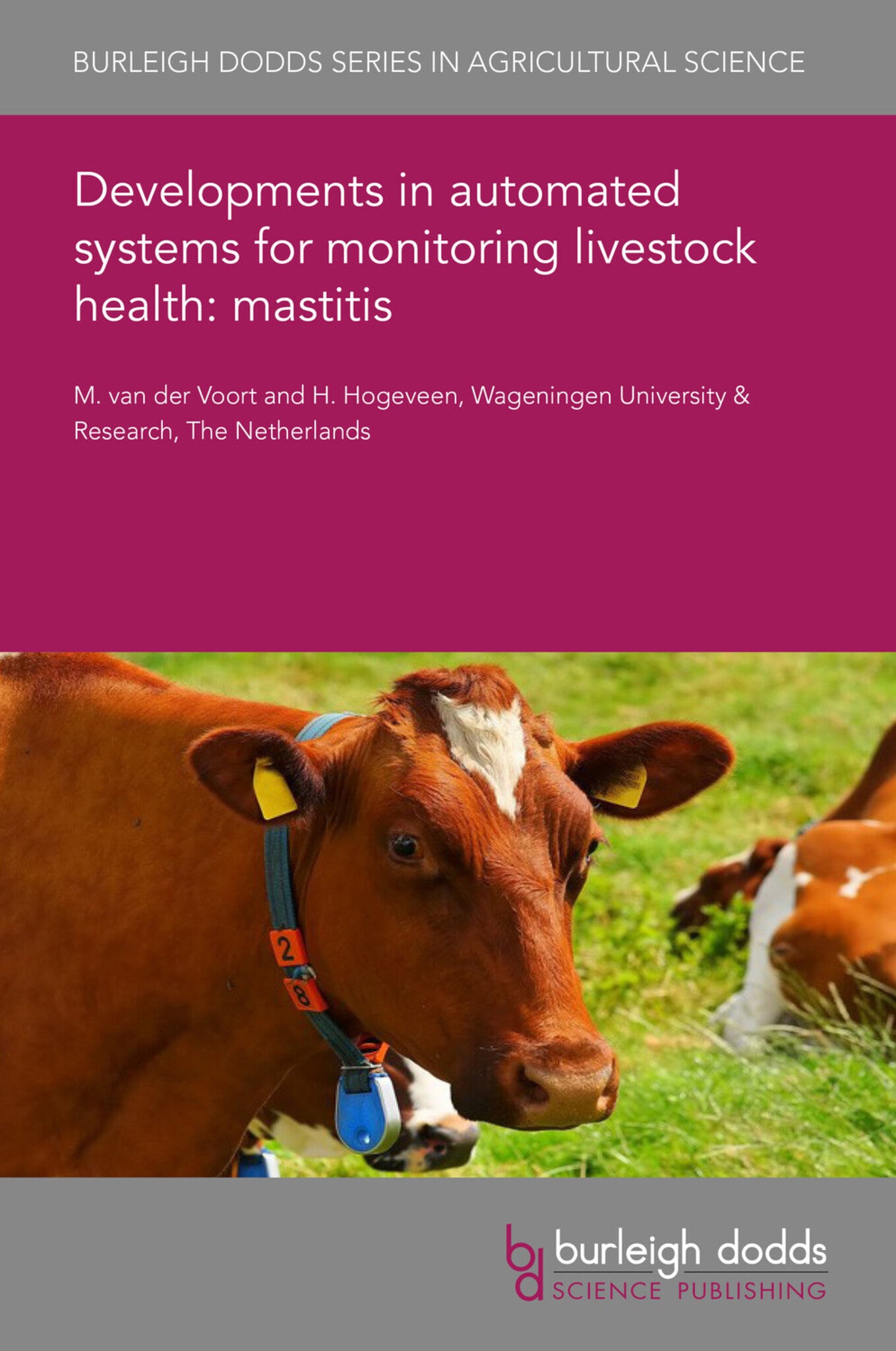We're sorry. An error has occurred
Please cancel or retry.
Developments in automated systems for monitoring livestock health: mastitis
Regular price
£25.00
Sale price
£25.00
Regular price
£25.00
Unit price
/
per
Sale
Sold out
Re-stocking soon
Dairy farmers need on-site, real-time information regarding mastitis occurrence in order to implement appropriate management actions. Technological progress has enabled the use of sensor systems as...
Read More

Some error occured while loading the Quick View. Please close the Quick View and try reloading the page.
Couldn't load pickup availability
- Format:
-
27 June 2022

Dairy farmers need on-site, real-time information regarding mastitis occurrence in order to implement appropriate management actions. Technological progress has enabled the use of sensor systems as the basis for mastitis management. In this chapter, we describe the current state of automated mastitis detection systems in dairy cattle and potential new developments in mastitis detection. Most developed detection systems are focused on clinical mastitis, with systems utilizing electrical conductivity, on-line California mastitis tests, L-lactate dehydrogenase and on-line somatic cell counting being commercially available. The results of these systems are sufficient for practical use but not ideal. In the search for improved automatic mastitis detection, research is focused on: 1) improving existing and developing new sensors, 2) improving existing algorithms and combining more data sources within the analysis, and 3) defining specific mastitis situations for custom-made management measures.

Price: £25.00
Publisher: Burleigh Dodds Science Publishing
Imprint: Burleigh Dodds Science Publishing
Series: Burleigh Dodds Series in Agricultural Science
Publication Date:
27 June 2022
ISBN: 9781801465175
Format: eBook
BISACs:
TECHNOLOGY & ENGINEERING / Agriculture / Animal Husbandry, Dairy farming, TECHNOLOGY & ENGINEERING / Agriculture / Sustainable Agriculture, Sustainable agriculture, Agricultural science, Agricultural engineering and machinery

1 Introduction 2 Components of mastitis sensor systems 3 Commercially available sensors 4 Future developments: biosensors 5 Future developments: combining data sources and improving algorithms 6 Conclusion 7 Where to look for further information 8 References



